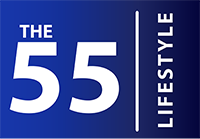When taken in the context of nutrition, iron is a mineral, same as calcium, magnesium, sodium, zinc, and so forth. For men 50 and over, understanding the right amounts of daily iron is important to a balanced diet, but understand as well that too much can pose health problems.
Why Do I need It?
Iron is an inorganic element necessary for the body to function. It’s a crucial component of hemoglobin’s, the proteins that carry oxygen from your lungs to body tissues, which aids in your metabolism. It facilitates your body’s growth and development, even down to the cellular level, so making sure we get enough is important.
How Much Do I Need?
A little background: Iron in our diets has two forms: heme and nonheme. The latter you can get from plants and iron-fortified foods, the former provides both types from meats, seafood, and poultry. How it’s absorbed into our body is called bioavailability and heme iron has higher bioavailability rate than nonheme.
According to the National Institutes of Medicine, the national research agency under the U.S. Department of Health & Human Services (and sourced in this blog), recommended iron intakes for men 50 and over should be just 8 milligrams (mg) per day. To put that into perspective, here is a list of food sources and their associated content:
- Breakfast cereal fortified (1 serving): 18mg
- Liver (3 oz.): 5mg
- Beef (3 oz. depending on cut): 2mg
- Turkey (3 oz.): 1mg
- Spinach (1/2 cup): 3mg
- Broccoli (1 cup): 1mg
- Chickpeas (1 cup): 4mg
- Potatoes (medium w/skin): 2mg
- Cashew nuts (1 oz.): 2mg
- Brown Rice (1 cup): 1mg
- Oatmeal (1 cup): 1.6mg
Excess Amounts
Excessive quantities of iron in your body can lead to a host of problems. Local symptoms can include gastrointestinal distress, headaches, drowsiness, dizziness, nausea and even can affect your pulse. More long-term concerns agreed upon through many sources, as indicated in articles from WebMD and LiveStrong to name a few, point to triggers with diabetes, and intestinal issues that can worsen existing conditions such as Ulcerative Colitis or Irritable Bowel Syndrome.
Beyond the small amount of daily requirements, your body cannot rid itself of excess iron and short of capping your intake and donating blood, it’s stored in vital organs such as your heart and liver. Research has shown higher levels of iron mean an increased risk of cancer since it encourages the production of free-radicals.
Finally, findings by the NDDIC (National Digestive Diseases Information Clearinghouse), which states that men are at more risk for a hereditary condition called hemochromatosis, caused by excess build up in the vital organs. Symptoms include fatigue, headaches, darkening of skin, sexual dysfunction, joint pain, and eventually diabetes, arthritis, liver disease and/or heart failure.
When to supplement?
Iron supplements are beneficial for people who suffer from a deficiency or anemia, or who don’t get adequate amounts in their diet. However, given the propensity to overload that may occur, it’s best any supplement be prescribed by your doctor before started. Remember, a man typically does not need more than their daily requirements and absorbs it quite efficiently without much loss.
Tips:
You shouldn’t have to plan for iron in your meal. Be aware of fortified foods as you may inadvertently get more than what you need. Read through the nutrition facts label and double-check the serving size and amounts offered.
As with most (if not all) diet recommendations, eat plenty of fruits and vegetables, which are high in antioxidants. Researchers suggest that antioxidants may help counteract the action of iron-associated free-radicals we referred to earlier.
If you take a multivitamin, check the label for the dosage. Unless your doctor has told you that you have a deficiency, find one without iron.
Conclusion
Iron is an essential nutrient that men 50 and over and should be included as part of their daily diet. It has an important role in essential body functions and you should take proper steps to get recommended amounts, but within your diet unless specified by your doctor. We hope that this blog has provided useful information in your search and as always would love to hear your feedback and suggestions for future topics!
References
“Office of Dietary Supplements – Iron.” NIH Office of Dietary Supplements, U.S. Department of Health and Human Services, ods.od.nih.gov/factsheets/Iron-HealthProfessional/.
“Iron: The Double-Edged Sword.” The Physicians Committee, 22 June 2015, www.pcrm.org/health/cancer-resources/diet-cancer/nutrition/iron-the-double-edged-sword.
“Hemochromatosis.” National Institute of Diabetes and Digestive and Kidney Diseases, U.S. Department of Health and Human Services, 1 Mar. 2014, www.niddk.nih.gov/health-information/liver-disease/hemochromatosis.
“Who Needs an Iron Supplement?” Who Needs an Iron Supplement? – Vitamins, Minerals and Supplementsents – HealthCommunities.com, www.healthcommunities.com/vitamins-minerals-supplements/who-needs-iron-supplements_ucbwl.shtml.
The 55 Lifestyle is a participant in the Amazon Services LLC Associates Program, an affiliate advertising program designed to provide a means for sites to earn advertising fees by advertising and linking to Amazon.com.









Excellent iron supplements guide for male over 50. Thanks